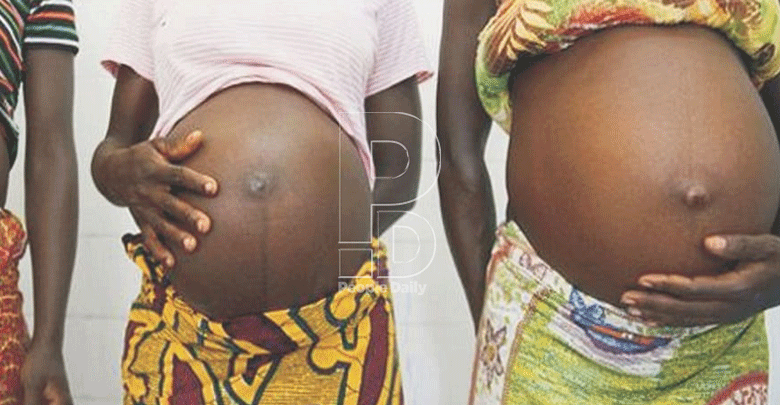100,000 girls married in first year of Covid, report reveals
By Irene Githinji, July 13, 2021Irene Githinji @gitshee
At least 100,000 teenage girls were married in the first year of the Covid-19 pandemic, according to a new report.
The Impact of Covid-19 on Adolescents in Kenya report says almost three out of ten girls (29 per cent) said they got married after the Covid-19 pandemic broke out.
“Among them, about two in five girls (42 per cent) confirmed that they got married after getting pregnant,” says the report.
The prevalence of early and forced marriages prompted a deeper analysis of early marriage and its key drivers within communities.
“My cousin got married in August this year [2020]. She said that she was wasting her time not going to school and she is not married, so she decided to get married,” said a 17-year-old out of school adolescent girl in Kajiado county.
Another 19-year old told the interviewers: “Corona has contributed so much. Parents have now lost hope in school.
So, there is a challenge and when schools reopen very few will go back to school as many are married.”
In Kisumu, a 15-year old respondent said violence at home depressed her.
An adolescent girl interviewed in Nairobi said violence at home was driving many girls into early sexual relationships.
“Some parents fight a lot nowadays and you cannot stay in the house, you go to a boyfriend’s house. You will obviously have sex and get pregnant,” she said.
In Wajir county, however, a majority of the married girls (87 per cent) said it was their choice.
But one in five (21 per cent) said they got married after the outbreak of Covid-19 while 13 per cent said it was not their choice.
“Half of the interviewed married girls said it would not have happened if it were not for the pandemic.
Some seven per cent said it was their parents’ choice, particularly in Wajir where one in five reported parental influence,” says the report.
Family dowry
Three per cent reported that they got married because their families needed the dowry.
The report says respondents gave a variety of reasons that often cause early marriages in the community, including pregnancies.
“Majority of respondents mentioned that marriage often takes place after a girl gets pregnant, while in other cases, an adolescent girl may elope with a boy,” said the report.
Some respondents said that some parents force a girl to move in with the boy when she falls pregnant so as not to “embarrass” the parents.
Poverty, peer pressure and conflict were also identified as key drivers of early marriages.
“Several adolescent girls mentioned that early marriage could be as a result of poverty at home and the desire for a better life.
In some cases, parents supported their adolescents in search of financial emancipation through marriage, viewing it as an opportunity to reduce the financial burden at home,” the report adds.
Others said that some girls get married out of peer pressure while others cited conflict, regular disagreements with parents or lack of emotional support from parents as contributing to early marriages.
Some respondents acknowledged that early marriages were practiced secretly since some parents still see their daughters as a financial investment.
More Articles

